Realizing Children’s Rights in Djibouti
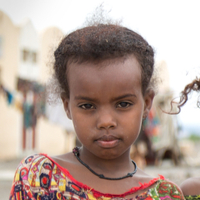
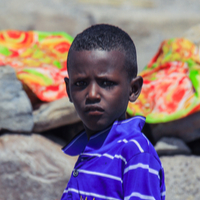
Djibouti has made progress since the most recent recommendations made by the Committee on the Rights of the Child in 2008, particularly from a legislative perspective. This is also reflected in the country’s report to the Human Rights Committee in 2020 (Committee on the Rights of the Child, 2020). However, it faces many challenges that still hinder children’s full enjoyment of their rights in Djibouti, including limited resources (Committee on the Rights of the Child, 2008), strong migratory flows, human trafficking, and even the strong presence of traditions not compatible with the rights of the child.

Children’s Rights Index: 6,68/10
Red level: Difficult situation
Population: 973,560
Pop. ages 0-14: 29 %
Life expectancy: 67 years
Under-5 mortality rate: 58 ‰
Djibouti at a Glance
The Republic of Djibouti is a small African country of 25,030 km2, located in the Horn of Africa. Most of the population lives in the capital, also called Djibouti (PopulationData.net, 2020). The country is poor, with a low HDI (0.495 in 2018) (Atlasocio.com, 2020).
Djibouti is a former French colony. Before taking this name during its independence on June 27, 1977, the country was known as French Somaliland from 1896 to 1967 and then the French Territory of the Afars and the Issas from 1967 to 1977 (Schraeder, 2021). As a result of this colonial past, Djibouti maintains close relations with France, which provides economic support, and the United States, which has a military presence (Université de Sherbrooke, n.d.).
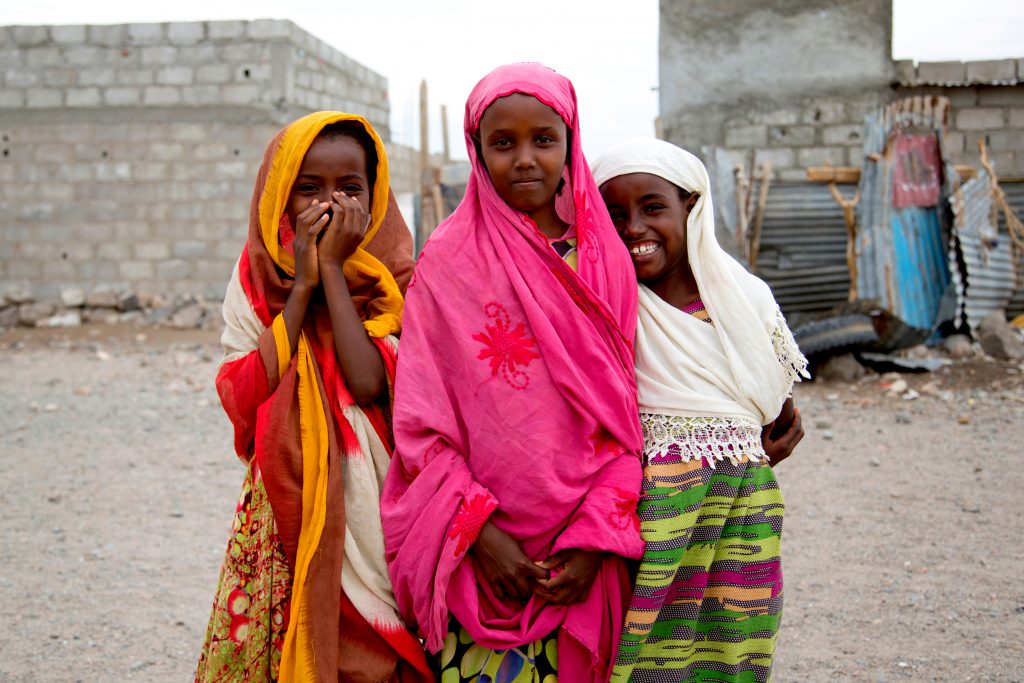
The country benefits from a United Nations Framework Plan for Development Assistance (UNDAF) from 2018-2022, in order to ensure and maximize synergies between the various programmes in place (United Nations Djibouti and Republic of Djibouti, n.d.). The expected results of this programme take into account the challenges faced by the country’s children, including access to education for all children, particularly girls (United Nations Djibouti and Republic of Djibouti, n.d.).
The Republic of Djibouti is facing strong migration flows (Human Rights Committee, 2013), and refugee camps have been set up. It is therefore important to take into account the situation these children face and the fragility of the protection of their rights in refugee camps, in particular due to the high migratory pressure (Committee for the Elimination of Discrimination against Women, 2011)
Status of Children’s Rights [1]
At the international level, Djibouti has made significant efforts and has followed the recommendations of the Committee on the Rights of the Child. For example, Djibouti has ratified several fundamental instruments on the rights of the child (Committee on the Rights of the Child, 2020).
These ratifications are in addition to the Convention on the Rights of the Child. To better implement the latter, Djibouti – with the support of development partners – has developed the public departments responsible for the main social services for children (education, health, and social protection), providing more human and financial resources (Committee on the Rights of the Child, 2020). In order to complement this convention, optional protocols have been put in place. Their obligations may be more stringent than those of the original agreement. Thus, States must decide independently whether or not to be bound by them (UNICEF, 2020).
Optional Protocols are treaties in their own right and are open for signature, ratification or accession (UNICEF, 2020). Since their ratification in Djibouti on 27 April 2011, Djibouti must apply the Optional Protocol to the CRC on the involvement of children in armed conflicts and the Optional Protocol to the CRC concerning the sale of children, child prostitution and child pornography.
However, Djibouti has still not ratified the Optional Protocol to the Convention on the Rights of the Child on a Communications Procedure, which allows any child to file an individual communication before the Committee on the Rights of the Child. Djibouti has also ratified Convention 182 on the Worst Forms of Child Labour, established in 1999, since February 28, 2005.
From a regional perspective, Djibouti has been a party to the African Charter on the Rights and Welfare of the Child since 2009, the Convention on the Rights of Persons with Disabilities and its Optional Protocol since 3 January 2010, and the African Union Convention on the Protection and Assistance of Displaced Persons in Africa (the Kampala Convention) since 3 January 2011.
At the national level, Djibouti has passed numerous laws to implement the recommendations of various United Nations bodies and to comply with its international commitments. These include the reform of the Family Code in 2002, which set the minimum age of marriage at 18 for both men and women. Exceptions are nevertheless provided for (Committee on the Elimination of Discrimination against Women, 2011). The adoption of the Code of Legal Protection of Minors by Law No. 95/AN/15/7th L on May 18, 2015 is, according to the Djiboutian government, “a far-reaching reform in the administration of juvenile justice and reaffirms the criminal minority set at 13 years of age” (Committee on the Rights of the Child, 2020).
Addressing the Needs of Children
Right to Education
Education has been compulsory for Djiboutian children between the ages of 6 and 16 since 2000 and the passing of the Education System Law. However, despite progress recognized by the Committee on Economic, Social and Cultural Rights, the right to basic education is not guaranteed for all (Committee on Economic, Social and Cultural Rights, 2013). Djibouti suffers from a social divide between urban and rural areas, citizens and migrants, and sedentary and nomadic people. For example, access to education is very limited for nomadic people, migrants, and people living in often isolated and remote rural areas (Committee on the Elimination of Racial Discrimination, 2017).
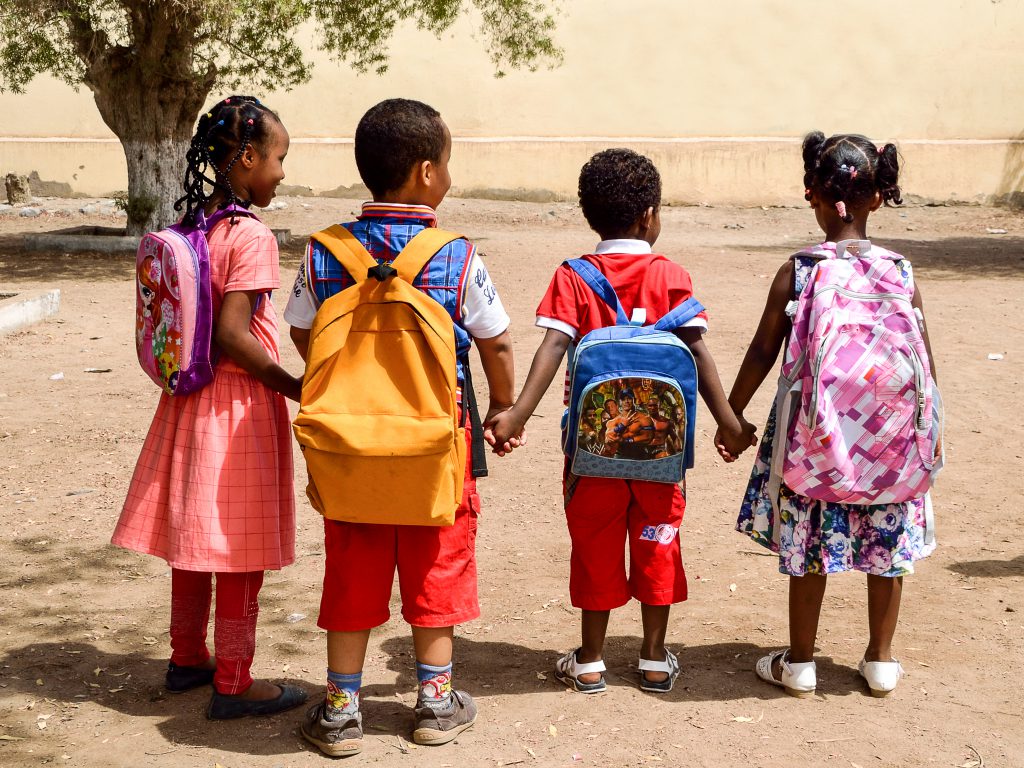
A pilot project of mobile schools has been mentioned by the Committee on Economic, Social and Cultural Rights, which could be a response to the two-tiered implementation of this fundamental right (Committee on Economic, Social and Cultural Rights, 2013). Beyond access to education itself, the quality of the education provided and school dropout rates are concerning. There is a high failure rate at school, due in particular to a school system and educational programme that are not adapted to the realities of the country and to students’ particular circumstances, such as, for example, nomadic students and those belonging to tribes, which have their own traditions to respect (Committee on Economic, Social and Cultural Rights, 2013).
According to the Djibouti government, “the gross enrolment rate increased by 11.2% over the 2006-2015 period, rising from 57.8% to 79%”, with a lower enrolment rate for girls (Committee on the Rights of the Child, 2020). According to UNICEF, “For every 5 children in school, another is out of school. Nomadic, migrant and refugee children, children with disabilities and girls are most affected.” (UNICEF 2018).
Right to Health
Access to health is problematic in Djibouti, and is particularly noticeable in the high rate of maternal mortality (Committee on Economic, Social and Cultural Rights, 2013). This is symptomatic of the broader problem of access to health for the entire population, with high inequality in the enjoyment of the right to health, due in particular to budgetary concerns (Committee on Economic, Social and Cultural Rights, 2013). This affects particularly marginalized rural areas (Committee on Economic, Social and Cultural Rights, 2013). Child mortality remains at a high rate. According to UNICEF, “For every 14 children, there is another who is at risk of dying of preventable causes before his or her fifth birthday” (UNICEF, 2018).
Right to Protection
In general, violence and sexual abuse against Djiboutian children is commonplace (Human Rights Committee, 2013), violating the right to protection. Corporal punishment of children is not clearly prohibited. No law clearly prohibits such practices by parents or other authority figures. Despite provisions to govern corporal punishment (i.e. torture is prohibited, as is food deprivation (Global Initiative to End All Corporal Punishment of Children, 2018)), nothing explicitly prohibits spanking, for example (Global Initiative to End All Corporal Punishment of Children, 2018).
Moreover, corporal punishment is tolerated in family circles, due in part to tradition (Human Rights Committee, 2013). Furthermore, the situation in refugee camps is problematic, with physical and sexual violence against children (Human Rights Committee, 2013; Committee on the Elimination of Racial Discrimination, 2017). The same is true in the Djiboutian judicial system, where there are “allegations of sexual violence against juvenile offenders in prisons, which have not been investigated or prosecuted” (Human Rights Committee, 2013).
Minors are not automatically separated from adults and imprisonment is the most commonly given sentence, not alternative punishments (Human Rights Committee, 2013). However, according to Djibouti’s report submitted as an equivalent to its third to fifth periodic reports required under article 44 of the Convention, expected from 2012 to 2020, the government mentioned that its Code of Legal Protection for Minors emphasizes alternative punishments (CRC, 2020).
Right to Identity
There is a real problem with birth registration in Djibouti. Nearly a quarter of births are not registered. Although birth certificates have been issued to children born in refugee camps since July 2013 (Committee on Economic, Social and Cultural Rights, 2013), refugee children born outside the camps are not systematically registered. Moreover, under the Djibouti Nationality Code, children born to foreign parents may find themselves stateless (Committee on Economic, Social, and Cultural Rights, 2013) and thus, without protection. Birth registration ensures that children have access to basic services such as health, social protection, and education, and protects children from child labour, exploitation, trafficking, and child marriage (UNICEF, 2020).
In 2012, according to the EDSF/PAPFAM survey, 92.6% of children under five years of age had their births registered with the civil registry. However, only 79.1% of births in rural areas were registered (Committee on the Rights of the Child, 2020). Nearly 7% of Djiboutian children under the age of five did not have birth certificates, according to the same study (Committee on the Rights of the Child, 2020).
Risk factors -> Country-specific challenges
Access to Food and Water Resources
Access to water and food is a problem in Djibouti, especially in the context of the climate emergency and strong migratory flows. Food insecurity and difficult access to water are realities in the country, especially for rural populations. These issues are amplified by poverty among such populations. The government is aware of this and has implemented, among other things, a large-scale policy to reduce food insecurity and malnutrition, but also to promote sustainable rural and social development since 2009 (Committee on the Rights of the Child, 2020).
To address the lack of financial resources, the country is assisted by development partners, such as in the implementation of the National Food Security Program from 2012 to 2017 (Committee on the Rights of the Child, 2020). The recent cross-border water project between Djibouti and Ethiopia is another example (CRC, 2020).
According to the Djibouti government, food insecurity has decreased since 2013. Indeed, according to its figures, between October 2016 and May 2018, there was a 26% decrease in the number of food-insecure households. Food insecurity in rural areas dropped by half́, and it is worth noting that 60% of households that experience food insecurity live in these remote areas (Committee on the Rights of the Child, 2020).
Child Labour and Child Trafficking
Child labour in Djibouti, and especially in its worst forms, is a scourge of society (Bureau of International Affairs, 2019). Efforts are being made by the government to try to eradicate it, such as increased resources for the police, with the creation of a special police unit to protect minors, and for the Ministry of Labour. However, as the U.S. Office of International Affairs reports, many minors are engaged in the worst forms of labour, including commercial and street sexual exploitation. Many of these are informal jobs, where, of course, legal standards, such as minimum age, do not apply (Bureau of International Affairs, 2019).
Girls are regularly exploited due to their position as domestic workers (Committee on the Elimination of Discrimination against Women, 2011). The normative influence of labour inspectors is non-existent. The government’s efforts are not sufficient due to a lack of both human and financial resources (Bureau of International Affairs, 2019). This raises the question of law enforcement.
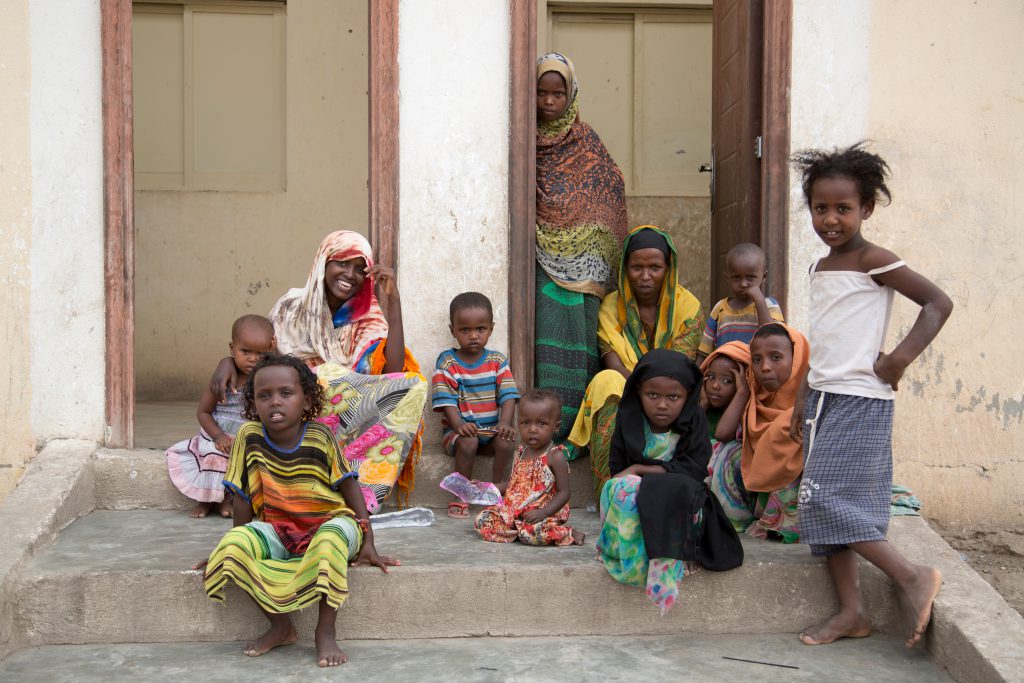
In addition, many children live on the streets as well as working there, and do not receive help from civil society organizations due to their limited capacity to cope with the magnitude of these cases (Committee on Economic, Social and Cultural Rights, 2013). There is a need for the country to take the lead in ensuring that these children are reintegrated into the school system, as well as ensuring that their basic needs, such as shelter and food, are met (Committee on Economic, Social and Cultural Rights, 2013).
Djibouti ratified the Protocol to Prevent, Suppress and Punish Trafficking in Persons, Especially Women and Children in 2005 and has adopted implementing legislation, including Law No. 210/AN/07/5 L of 2007 on Combating Trafficking in Persons (Human Rights Committee, 2013) and Law No. 133 of 2016 on Combating Trafficking in Persons and Smuggling of Migrants. However, human trafficking is a sad reality in the country. Djibouti is even considered a human trafficking “hub” (Committee on the Elimination of Racial Discrimination, 2017), with the phenomenon mainly affecting women and children, especially foreigners, who find themselves the victims of sexual exploitation as a result.
Female Genital Mutilation
Djibouti is a country where the traditional practice of female genital mutilation has a strong presence, more so than the marriage of child brides, which nevertheless exists (UNICEF, 2021), despite the adoption of Law No. 55/AN/09/6th L on violence against women, including female genital mutilation (Committee on Economic, Social and Cultural Rights, 2013). This practice has even been criminalized since 1995 (Committee against Torture, 2011).
The issue of effectively implementing the provisions on the prohibition of female genital mutilation is again raised by the Committee on Economic, Social and Cultural Rights in its 2013 concluding observations (Committee on Economic, Social and Cultural Rights, 2013) and even by Djibouti in its report to the Committee against Torture (Committee against Torture, 2011). According to the UNDAF, in Djibouti in 2018, 41,000 people were given training on preventing female genital mutilation (UNDAF, 2019).
Written by Juliette Bail
Translated by Anna Carthy
Proofread by Garen Gent-Randall
Last updated on March 1, 2021
Références:
Comité des droits de l’enfant. (2020). Rapport valant troisième à cinquième rapports périodiques soumis par Djibouti en application de l’article 44 de la Convention, attendu en 2012.
PNUAD. (2019). Rapport annuel 2018. Récupéré sur Nations Unies à Djibouti.
PopulationData.net. (2020, Mars 16). Djibouti. Récupéré sur PopulationData.net.
[1] This article does not purport to provide a comprehensive or representative account of child rights in Djibouti; indeed, one of the many challenges is the lack of up-to-date information on children. This article is mostly based on sources from the United Nations that should be corroborated with resources from other organizations.

